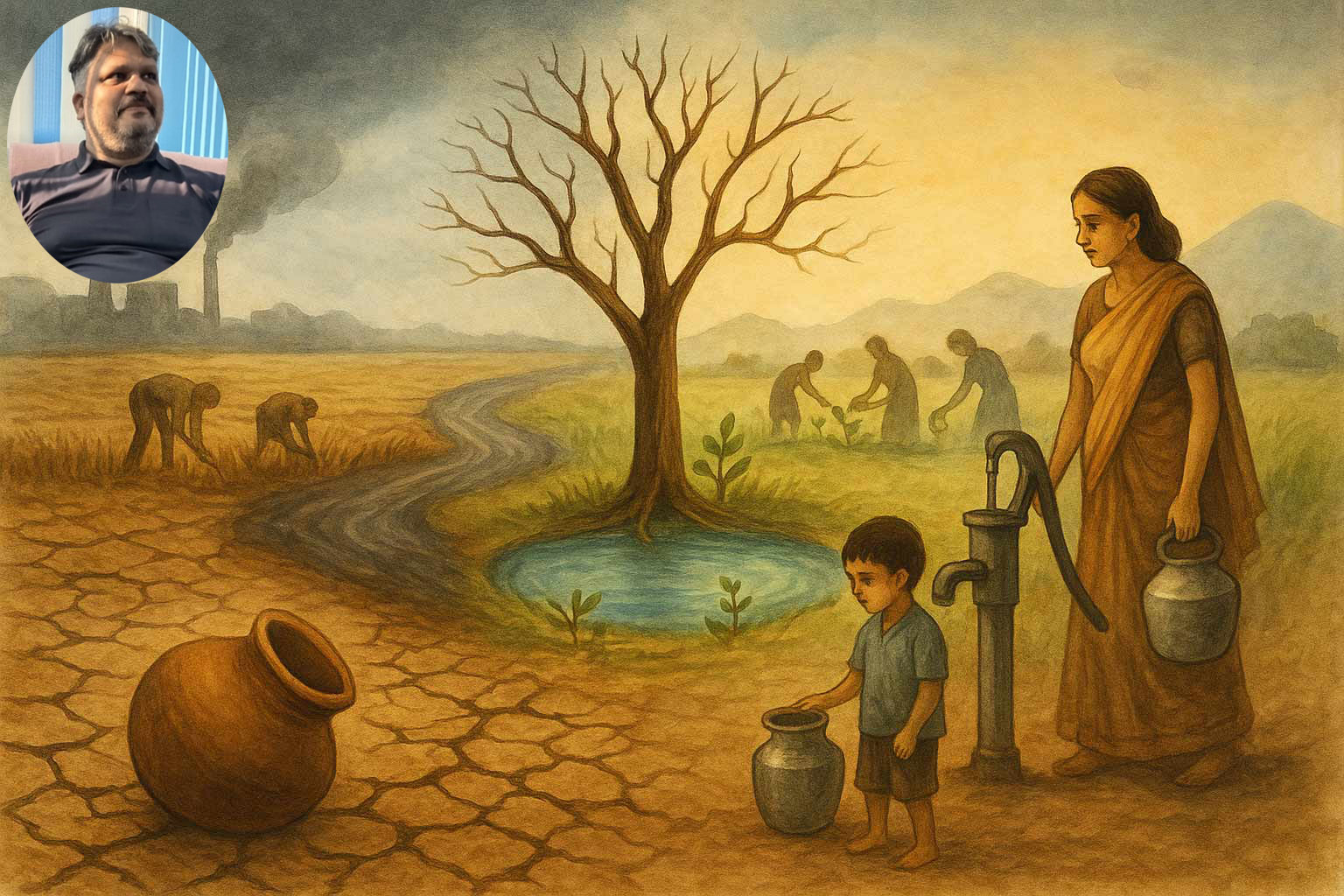Water Crisis A Warning Bell for the Future
Drying water resources and the declining level of groundwater are a nationwide problem today. Punjab being an agricultural state, this crisis is a matter of even greater concern. "Water is life" is a sentence that applies to the entire world. The lifeline of every human being, animal and plant is water. We cannot even imagine life without the presence of water. Clean air and water are extremely important to keep the nature of nature alive.
Drying water resources and the declining level of groundwater are a nationwide problem today. Punjab being an agricultural state, this crisis is a matter of even greater concern. "Water is life" is a sentence that applies to the entire world. The lifeline of every human being, animal and plant is water. We cannot even imagine life without the presence of water. Clean air and water are extremely important to keep the nature of nature alive.
But today, man is making life very difficult for the coming generations by misusing natural resources, especially water, for his own selfish interests. Today, if we talk about water crisis in India, then our country is facing a very difficult situation. We have a shortage of fresh water resources and the groundwater reservoir is being misused to an alarming extent. Today, the situation is such that many families in the country are not getting clean drinking water. If the situation continues like this, then by the year 2030, 40% of the country's population will be thirsty for drinking water.
India has only 4% of the world's clean water reserves, but 18% of the world's population is depending on it. Today, the shortage of drinking water is taking a terrible form day by day. This problem is having adverse effects on the economy of our country. According to an estimate, due to this crisis, the gross domestic product has decreased by 6%. Due to the lack of clean drinking water, people across the country are facing various health problems.
Recently, I got to read the story of Chandramohan Kandpal, a sincere professor from the state of Uttarakhand. He is a post graduate in chemistry and is associated with the teaching faculty at Adarsh Inter College, Surakhet. He formed the "Pariavaran Chetna Manch" and after his college vacation, he started making children aware about environmental conservation in his free time.
Chandra Mohan Kandpal gave a unique slogan to save water, "Pani Bijo, Pani Ugao". He built small ponds to make barren fields cultivable again and to collect rainwater. Due to his tireless efforts, 22 water tanks became waterlogged again. For this initiative, he was awarded the sixth National Water Award and now this campaign is being expanded at the state level.
There was a time when the villages of this province were empty and people were migrating in search of employment. At that time, Mohan Kandpal formed 62 Mahal Mangal Dals in the areas of Durahat and Bhikiamaun with the intention of making women aware. More than one lakh different saplings were planted in the vicinity of these villages. Encouraged housewives struggling with water scarcity to take up farming and launched the "Pani Bijo, Pani Ugao" campaign in 2012.
Like the entire country, today our own state, Punjab, is facing a serious water crisis. The groundwater level is getting depleted day by day. The sources of drinking water are getting depleted. Fifty years ago, every village used to have 10-12 wells which used to be filled with clean water all year round. Every farmer used to have his own personal well in the fields. But today, there is hardly any well in the entire state which has water or whose water is fit for use.
The groundwater is going down at an alarming rate of 0.49 meters per year. Today, a large part of Punjab has come under the black zone due to the decline in the water level. The main reason for this is considered to be paddy farming and some industries. Industrial waste and poor sewage management are being blamed for the pollution of surface water. Today, our remaining rivers like Beas, Sutlej, Ghaggar and Kali Bein have become polluted to a great extent.
Today, in many parts of Punjab, there is a presence of many dangerous elements in the groundwater, including heavy metals like lead, selenium, arsenic. Apart from this, there is also a lot of chemical elements like fluoride and salt, which are fatal to human health. Punjab is the food provider of the country, but today our state is facing challenges in agriculture, public health and balanced development due to serious water crisis.
Today, we have the dual problem of water scarcity and pollution. To solve the water crisis, the state government has initiated some measures. Direct sowing of paddy is being promoted. For this, the "Save Water, Earn Money" scheme has been started. Methods of saving water are also being implemented through the use of micro water systems and drip irrigation technology. People are being made aware through propaganda and media to use water sparingly. Fines are also being imposed on those who misuse water. All other citizens also have their own moral duty to use this precious treasure of nature wisely.
-Davinder Kumar


